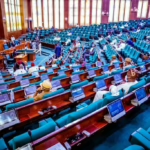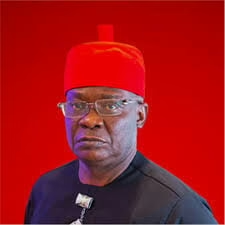Ezenwa Nwagwu, Executive Director of the Peering Advocacy and Advancement Centre in Africa (PAACA), has expressed deep concern over the widespread lack of awareness among Nigerians regarding the legal frameworks that govern elections. He emphasized that this gap in knowledge significantly contributes to the proliferation of misinformation surrounding electoral processes.
Addressing attendees at a town hall meeting held in Ilorin, Kwara State, on Wednesday, September 17, 2025, Nwagwu highlighted the critical need for enhanced voter education. The event, organized by PAACA with support from the MacArthur Foundation, brought together diverse stakeholders to discuss electoral awareness.
According to Nwagwu, much of the confusion and false narratives about Nigeria’s elections stem from a limited understanding of election laws and procedures. He stressed that boosting voter sensitization and civic education is essential to dispel myths and build trust in the electoral system.
Looking ahead to the 2027 general elections, Nwagwu urged that voter education and continuous civic enlightenment be prioritized. He voiced concern that some politicians exploit voters’ unfamiliarity with electoral regulations to manipulate outcomes.
The town hall formed part of PAACA’s ongoing initiative to foster a clearer comprehension of electoral processes. Participants included representatives from the Independent National Electoral Commission (INEC), security agencies, traditional rulers, the National Orientation Agency, civil society groups, and media professionals.
“A significant portion of the misinformation surrounding elections arises from a fundamental misunderstanding of the legal frameworks that govern them,” Nwagwu remarked. “Witnessing the extent of this ignorance has been eye-opening, and we are committed to using platforms like this to educate and close that gap.”
He further reminded the audience that elections are fundamentally driven by the people, and meaningful reforms depend on a thorough grasp of electoral laws and the integration of new technologies to support and guide the process.
Nwagwu also raised alarms about what he termed “community collusion,” a phenomenon that undermines electoral integrity and weakens accountability at local levels. “Some stakeholders, including ourselves, bear responsibility. We must become catalysts for change rather than seeking short-term gains,” he stated. “If INEC has empowered you, it is imperative to harness that power responsibly rather than diminish its value. We must become well-versed in the law because politicians often exploit legal loopholes to subvert the process.”
Emphasizing the importance of ongoing civic participation, Nwagwu encouraged attendees to actively disseminate the insights gained from the town hall within their communities and professional spheres. “The true impact of this program lies in how we share this knowledge. We cannot afford to be passive observers after acquiring so much valuable information,” he urged.
PAACA plans to maintain engagement with stakeholders through similar forums and other outreach efforts to deepen public understanding of elections and enhance democratic involvement.
Dr. Hale Gabriel Longpet, Resident Electoral Commissioner (REC) of INEC in Kwara State, also addressed the gathering, praising PAACA for convening the event. He described it as a timely opportunity to reflect on the successes and challenges of previous elections and to strategize improvements ahead of 2027.
Longpet reaffirmed INEC’s dedication to ongoing voter education and efforts to boost electoral participation. He underscored that conducting free, fair, and transparent elections that truly represent the electorate’s will requires collaboration among civil society, political parties, the media, security forces, the judiciary, and other key players.
“By working together, we can enhance voter education, ensure compliance with electoral laws, prevent malpractice, deliver essential services, and improve the overall election experience,” he said.
Reflecting on the 2023 elections, Longpet acknowledged the resilience demonstrated despite various obstacles. He highlighted reforms introduced by the Electoral Act 2022, including the deployment of the INEC Voter Enrolment Device (IVED), the Biometric Voter Accreditation System (BVAS), and the INEC Results Viewing (IReV) portal, all of which contributed to greater transparency.
Nonetheless, he pointed out ongoing issues such as early campaign activities, electoral violence, insecurity, and vote buying that continue to challenge the electoral landscape.
Longpet revealed that INEC submitted 142 post-election recommendations to the National Assembly, with eight proposals requiring amendments to the constitution or the Electoral Act.
Looking forward, he identified key focus areas: improved election planning and logistics, enhanced cooperation among security agencies to safeguard elections, persistent voter education to combat apathy and misinformation, and leveraging technology to promote transparency and accountability.

















